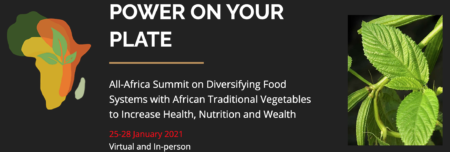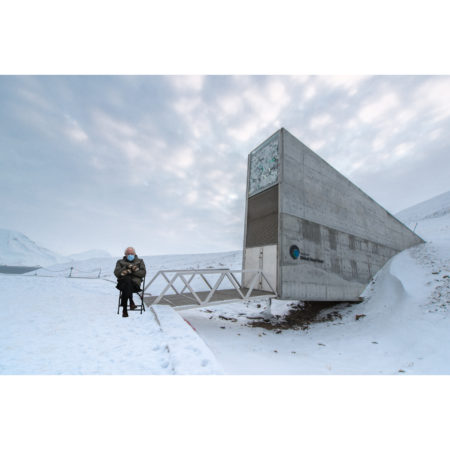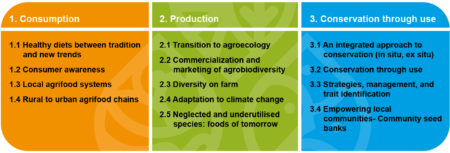- No buzz for bees: Media coverage of pollinator decline. Nobody cares. Unless it’s linked to climate change.
- Climate impacts associated with reduced diet diversity in children across nineteen countries. Something else that’s linked to climate change and too few care about.
- People are essential to linking biodiversity data. Seriously, get an ORCID ID.
- Why European biodiversity reporting is not reliable. It’s the free indicator choice in CBD reporting is what it is. Also, not enough attention to genetic diversity. Now, where have I heard that before?
- Reversing extinction trends: new uses of (old) herbarium specimens to accelerate conservation action on threatened species. Not just useful in generating new knowledge (including on genetic diversity), can also be used as seed sources and in public awareness.
- Ex Ante Assessment of Returns on Research Investments to Address the Impact of Fusarium Wilt Tropical Race 4 on Global Banana Production. Conventional breeding for resistance could lift almost a million people out of poverty. That would be quite the indicator.
- Genomic resources in plant breeding for sustainable agriculture. Would help with the above.
- Can Niche Markets for Local Cacao Varieties Benefit Smallholders in Peru and Mexico? Maybe. Read it, it’s not that long.
- Quantifying and addressing the prevalence and bias of study designs in the environmental and social sciences. Everyone should use randomised designs and controlled observational designs with pre-intervention sampling. No, you did not just waste your time reading the above.
- Crop wild relatives of the United States require urgent conservation action. 60% of 600 native taxa need urgent help.
- Limits and constraints to crop domestication. Most of the world’s 2000 crops are not fully domesticated, for reasons such as trait architecture, lack of diversity in domestication traits, accumulation of genetic load and gene flow from the above. But something can be done about it.
Power on your plate, served up
The All-Africa Summit on Diversifying Food Systems with African Traditional Vegetables to Increase Health, Nutrition and Wealth opens today, Monday, January 25 at 09:00 Tanzania time.
All the information is on the WorldVeg website.
There’s a webinar, of course, if you’re into the whole interactivity thing.
There’s a Youtube channel too if you miss anything.

Had to do it

Try it yourself.
And we’re off…
The call for abstracts for the 2nd International Agrobiodiversity Congress – Agrobiodiversity for Food System Transformation, is now open. The Congress, scheduled for October 2021, will focus on the role that agrobiodiversity can play in positively changing our food systems. The deadline for abstract submission is 18 April 2021.
Go for it.

Brainfood: Sweet cassava, Iranian wheat, Wild tomato, Ethiopian sorghum, Portuguese beans, Wild Algerian oats, Angolan Vigna, Apple tree, Regeneration, Robusta climate, Bronze Age diets, Maize domestication, Veld fruits, Red yeasts, Remote sensing
- Large‐scale genome‐wide association study, using historical data, identifies conserved genetic architecture of cyanogenic glucoside content in cassava (Manihot esculenta Crantz) root. Two loci explain about a third of variation in HCN content.
- Strategic use of Iranian bread wheat landrace accessions for genetic improvement: Core set formulation and validation. Not much structure, but some accessions are good for multiple traits.
- Population studies of the wild tomato species Solanum chilense reveal geographically structured major gene-mediated pathogen resistance. Not all populations of a crop wild relatives will be equally useful in breeding.
- Genetic diversity of Ethiopian sorghum reveals signatures of climatic adaptation. 12 sub-populations, with about 10% of the variation explained by either agroecology or geography.
- Common bean SNP alleles and candidate genes affecting photosynthesis under contrasting water regimes. And all in just 158 Portuguese accessions.
- Genetic Diversity and Population Structure of Algerian Endemic Plant Species Avena macrostachya Bal. ex Cross. et Durieu. Collecting sites need to be visited again. I can vouch that doing so would be very interesting.
- Conservation priorities for African Vigna species: Unveiling Angola’s diversity hotspots. It’s a huge collecting gap.
- Remote sensing enabled essential biodiversity variables for biodiversity assessment and monitoring: technological advancement and potentials. The Remote Sensing enabled Essential Biodiversity Variables are a work in progress. Would like to see it applied to those Vignas.
- Genomic consequences of apple improvement. …are relative genetic uniformity.
- Genome-Wide DArTSeq Genotyping and Phenotypic Based Assessment of Within and Among Accessions Diversity and Effective Sample Size in the Diverse Sorghum, Pearl Millet, and Pigeonpea Landraces. Optimal sample size for regeneration of genebank accessions varies from 50-200 among crops.
- Not so robust: Robusta coffee production is highly sensitive to temperature. Looking at historical production data from 800 farms in SE Asia suggests optimal temperature is below 20°C, a lot lower than suggested by the species’ home range in the Congo Basin.
- Exotic foods reveal contact between South Asia and the Near East during the second millennium BCE. Bronze Age Levantines ate bananas and soya, according to dental calculus. No word on coffee.
- Archaeological Central American maize genomes suggest ancient gene flow from South America. Pre-domesticated maize was taken to South America, where is was finished off away from introgression from pesky wild relatives, and then taken back home.
- Fruits of the Veld: Ecological and Socioeconomic Patterns of Natural Resource Use across South Africa. South Africans collect and eat a lot of wild fruits, but could plant and eat them more.
- Exploring the Biodiversity of Red Yeasts for In Vitro and In Vivo Phenotypes Relevant to Agri-Food-Related Processes. Which is interesting because they can delay food spoilage and also provide nutritional supplements. Though personally I’d prefer veld fruits.